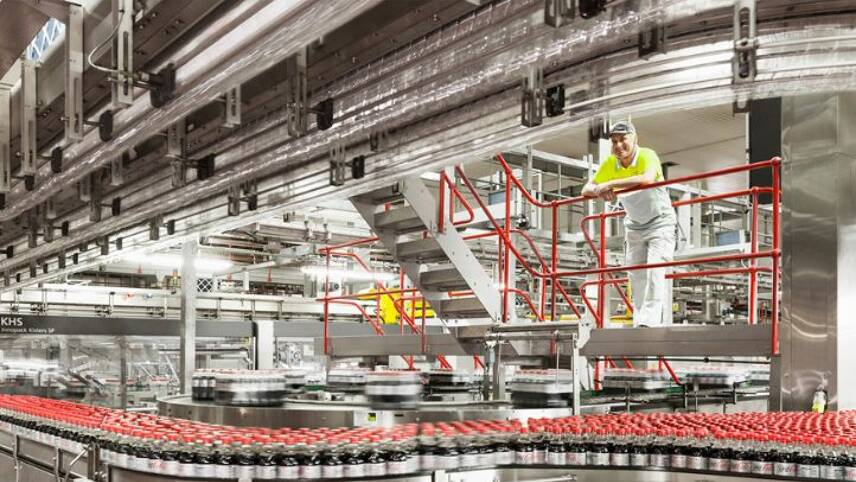Register for free and continue reading
Join our growing army of changemakers and get unlimited access to our premium content

CCEP's plastic packaging contained 27.6% recycled material in 2018
The progress was posted in Coca-Cola European Partners’ (CCEP) first integrated annual report, which also tracks the beverage giant’s progress on water conservation, carbon reduction and improving the nutritional portfolios of its products.
Published on Thursday (14 March), the 200-page report states that CCEP is on track to achieve its 2025 goal of making all PET bottles with at least 50% recycled content. To secure a continuous and secure supply of recycled PET (rPET), the firm has made several investments into recycling infrastructure improvements and closed-loop innovations. A key step for CCEP in this space was securing a deal with rPET supplier Loop Industries, which uses patented technologies to restore plastic streams contaminated by dyes to ‘near-virgin’ quality.
The report also records strong progress towards CCEP’s 2025 ambition of ensuring that 100% of its packaging is “truly” recyclable, with the proportion having stood at 98% in 2018. Challenges remain for some fruit-based beverages, which require a full flexible plastic ‘sleeve’ in order to retain product quality and prolong shelf life, the document notes.
In order to reach the 100% recyclability mark, CCEP has committed to collaborate with waste management firms, local authorities and national governments to ensure that infrastructure and policy is reformed to support a closed-loop system for plastic packaging waste. Last year, the firm forged partnerships toward this aim with the likes of WRAP and Valpak in the UK, CITEO in France and Ecoembes in Spain.
“Plastic is a complex issue – on the one hand, far too much plastic packaging ends up as litter or in our oceans and, on the other, plastic can be a highly sustainable packaging material that’s easy to recycle, with a lower carbon footprint than aluminium or glass,” CCEP’s chief executive Damian Gammell said.
“At CCEP, we believe the answer lies in building a circular economy, where 100% of our primary packaging is collected and reused. We’re looking at ways to make closed loop recycling a reality by supporting well-designed deposit return schemes and partnering with local household collection schemes, as well as investing in the rPET supply chain and PET reprocessing infrastructure.”
Gammell’s comments echo those of CCEP’s head of sustainability Nick Brown, who recently told edie that no business can “do the right thing” on plastic without the support of policymakers, consumers and wider industry.
New plastics economy
The publication of CCEP’s report came as The Coca-Cola Company disclosed its total plastic footprint for the first time, revealing that it used three million tonnes in its global operations 2018. This figure accounts for both virgin and recycled plastics.
The firm is one of 35 corporates to have disclosed such information publicly through the Ellen MacArthur Foundation’s New Plastics Economy Global Commitment spring 2019 report, with this group also including the likes of Colgate Palmolive, SC Johnson and Unilever.
Published on Thursday, the report reveals a string of new plastic reduction pledges from the 150 companies to have joined the Commitment, which was set up to unite organisations under the common goal of creating a “new normal” for plastic packaging by 2025.
All signatories have now committed to ensuring that 100% of their plastic packaging is recyclable, reusable or compostable by 2025, with most also pledging to source greater volumes of rPET in the coming years.
Overall, the Foundation estimates that the 107 consumer goods, food and drink, retail and packaging firms to have joined the initiative use eight million tonnes of virgin plastic in packaging lines every year – the equivalent of one-fifth of the world’s plastic packaging production by weight.
“Many of these companies are publishing this information for the first time, and this is an important step forward to create transparency,” the Ellen MacArthur Foundation’s New Plastics Economy lead Sander Defruyt said.
“We applaud the companies that are publishing this data and encourage all other companies that make and use plastics to follow their lead.”
Sarah George


Please login or Register to leave a comment.